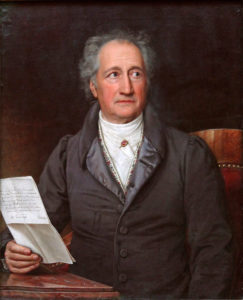
To Henry Ward Abbot
26 Millmont St.
Roxbury,Massachusetts. August 6, 1889
You are not a Philistine: why then do you have the hardness the narrowness and the dogmatism of Philistia in your feelings? It exasperates me because I have always believed you were not really so: that the best in you was the real, and the worst the affectation and accidental dye. You may not influence me in the way of changing my ideas: I am not your disciple or (as you once wrote) your protégé. But you do make me do things I should not do of my own free will, as e.g. show you my verses. When I am with you I almost adopt your notions about my supposed literary rôle: I almost catch your tone. But my real feeling and conviction are quite opposed to that: I know what I want to do, and what I amount to. You think you encourage me, and in one sense you do: but you encourage me to be something worse than what I really am: that is what you do not see, and it disgusts and repels me that you should not see it.
I must quarrel with your criticism of neo-paganism. In my case it may be true that it is forced (although I do not feel it so myself). I may not be able to free myself entirely from the oppression of a false idealism. But the question is a broad one: my lingering superstitions or yours are personal accidents. I protest against the notion that what is really joyous and lovely in life is for ever vitiated to all men because a fictitious and fanatical system has had great influence in the world. Your position is hardly tenable. You admit, do you not, that paganism is rational and satisfactory for men who have not been Christians? So that for our children, if we brought them up without Christianity, paganism would be natural and rational. That is, paganism is the human and spontaneous attitude of an intelligent and cultivated man in the presence of the universe. So that your consistent pessimism is but the unnatural reaction after an unnatural excitement and strain. The Hebrew religion and its twin offspring, and more than all, the Hebraising sects of Christianity, represent a false moral interpretation of life, a weight of responsibility and a consciousness of importance, which human nature repudiates. The Jews had the incredible conceit of believing they had made a covenant with nature, by which the mastery of the earth and all the good things thereof were secured to them in return for fidelity to a certain social and religious organization. Freed from its religious and irrational nature this covenant might stand for something real. Nature does award her prizes in return for fidelity to certain ethical laws: only these laws are natural: they are variable according to circumstances, and discoverable only by experience and study of history. But a religion, as it develops, loses hold of the natural significance and justification of its first principles. The fiction grows, the truth dwindles. So with the Hebrew idea. From recognition of the conditions of worldly success it waxed into the assertion of an inscrutible inward law with transcendent and imaginary sanctions. The crushing weight of delirious exhaltation is still felt, especially in Protestant communities. Catholicism is rational in its morals: its superstitions are in the field of fancy and emotional speculation; in conduct it has remained rational, granting the reality of the conditions of life believed in. In fact I have never been well able to understand the moral superstition of conscience and duty. Only when reading of or seeing cases of insanity has it become clear to me. Alan Mason, for instance, has moral delirium, a fearful belief in right and wrong, without external sanctions, and of pathological origin. A touch of this insanity is what pervades society. And will you pretend to assert that life is not worth living if we are not mad? that only superstitious terrors give it value? that actual goods are worthless and fictitious and imaginary goods—in which is no enjoyment, no peace, and no loveliness,—are alone valuable? I confess, that seems to me pure madness. The world may have little in it that is good: granted. But that little is really and inalienably good. Its value cannot be destroyed because of the surrounding evil. But the greatest of all evils is surely that lunacy that convinces us that this little good is not good, and subverts natural standards in favor of unnatural and irrational standards. It is a form of insanity. And you know how the insane tinge sometimes all their experiences with a pathological horror or emptiness. That is just what you would have us do in the name of consistency. It seems to me that even supposing that our illusions are pleasant and consoling (which is not the case with moral illusions, although it may be with purely imaginative and speculative fictions) the lesson of life is to give them up quietly and settle down, a sadder but a wiser man, on the new basis. And believe me, in respect to paganism, the new basis is the best basis. It admits more noble emotion, more justifiable ambition, more universal charity, than the old system. I cannot go on for ever: but I should like to show how we deceive ourselves in thinking that immortality, for instance, really added to our lives any value. An old man’s enthusiasms, if he has any, are naturally for the world he leaves behind him not for himself. . . . Goethe is the real spokesman of neo-paganism. I follow him.
From The Letters of George Santayana: Book One, [1868]-1909. Cambridge, MA: The MIT Press, 2001.
Location of manuscript: Butler Library, Columbia University, New York, NY.
